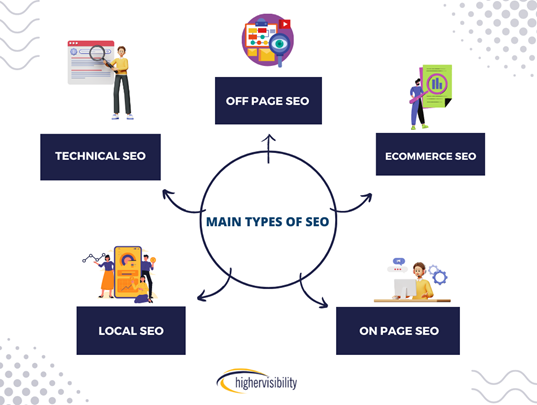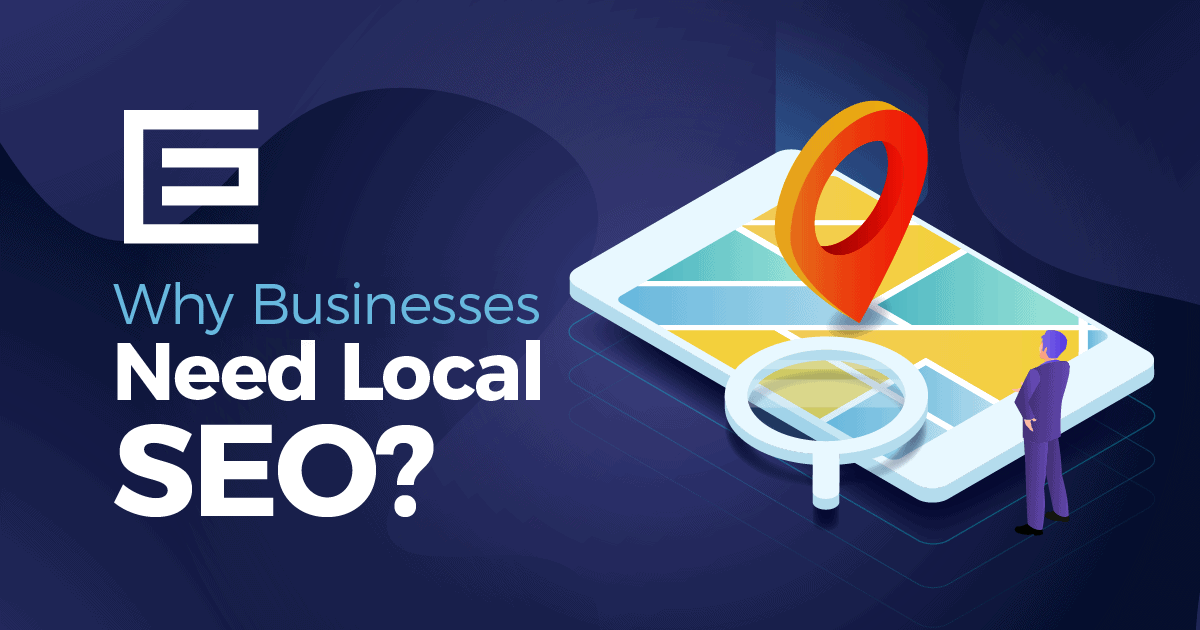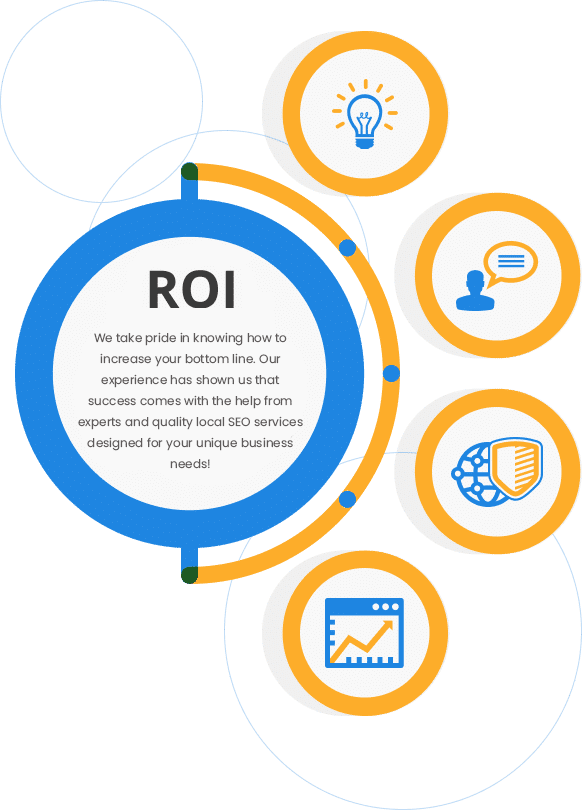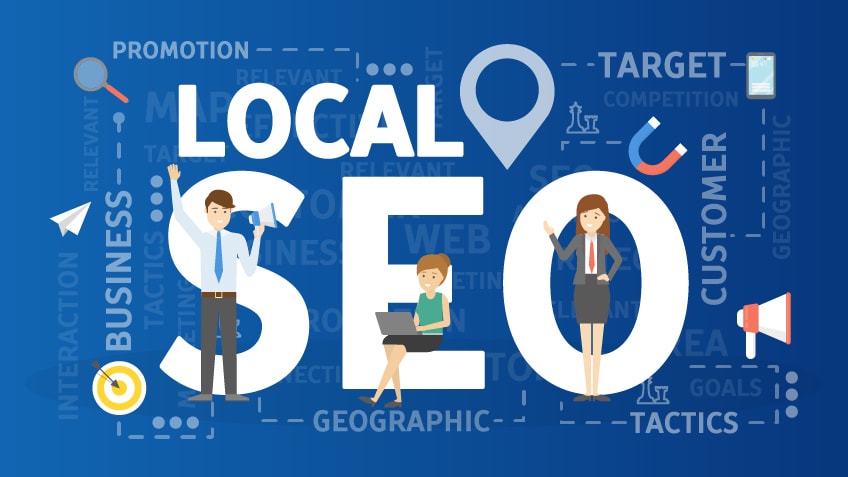Uncover the secrets to dominating local search results with these must-have services that will skyrocket your business’s online visibility.

Image courtesy of via DALL-E 3
Table of Contents
Introduction to Local SEO
Local SEO is a vital tool for businesses looking to increase their visibility on search engines, especially in their local area. It helps businesses attract nearby customers who are actively searching for products or services online. In today’s digital age, having a strong online presence is crucial for the success of any business.
What is Local SEO?
Local SEO stands for Local Search Engine Optimization. It is the process of optimizing a business’s online presence to attract more local customers. When people search for businesses near them on search engines like Google, local SEO helps those businesses appear in the search results.
Why Local SEO Matters
Local SEO is essential for businesses operating within a specific local community. By optimizing their online presence for local searches, businesses can attract nearby customers who are more likely to convert and become loyal patrons. It helps businesses build a strong customer base in their area and stand out from competitors.
Optimizing Google My Business
Setting up your Google My Business profile is the first step to ensuring your business appears in local search results. To get started, sign up for Google My Business and fill out all the basic information about your business. This includes your business name, address, phone number, and website. Make sure the information is accurate and detailed to help potential customers find you easily.
Optimizing Business Information
Keeping your business information accurate and up-to-date is crucial for optimizing your Google My Business profile. Ensure that your business name, address, and phone number (NAP) are consistent across all platforms. This consistency builds trust with both customers and search engines, improving your chances of showing up in local searches.
Adding Photos and Reviews
Adding high-quality photos and encouraging customer reviews can significantly boost your business’s online visibility and credibility. Photos give potential customers a glimpse of what to expect from your business, while positive reviews build trust and attract more customers. Encourage satisfied customers to leave reviews on your Google My Business profile to enhance your online reputation.
Conducting Local Keyword Research
In order to attract local customers to your business, it’s crucial to understand the search terms they use when looking for products or services like yours. This process is known as local keyword research. By identifying and using the right keywords, you can improve your business’s visibility in local search results and reach potential customers in your area.

Image courtesy of www.highervisibility.com via Google Images
Understanding Keywords
Keywords are the specific words or phrases that people type into search engines when looking for information or businesses. For example, if someone in your area is looking for a bakery, they might type in “best bakery near me” or “local bakery with fresh pastries.” These are the keywords you want to target in your online content to attract local customers.
Finding Local Keywords
To find the right local keywords for your business, you can use tools like Google Keyword Planner. This tool allows you to see what terms people are searching for in your area related to your business. Look for keywords that are relevant to your products or services and include location-specific terms like city names or neighborhoods.
Using Local Keywords in Content
Once you have identified the local keywords that are relevant to your business, it’s important to incorporate them into your website content. Include these keywords in your website copy, blog posts, meta tags, and other online content. This will help optimize your site for local search and increase the chances of attracting local customers who are searching for what you offer.
Building Local Citations
Local citations play a crucial role in improving a business’s visibility in local search results. But what exactly are local citations, and why are they important for Local SEO?
What Are Local Citations?
Local citations are online references to a business’s name, address, and phone number (NAP) across various directories and platforms. These citations help search engines like Google verify the legitimacy and relevance of a business, thus improving its local search rankings. Common online directories where citations can be found include Yelp, Yellow Pages, and Google My Business.
Creating Citations
Creating citations involves adding your business to these online directories and ensuring that your NAP information is consistent across all platforms. This consistency is key to building trust with search engines and potential customers. By listing your business in relevant directories, you increase the chances of being found by local customers searching for products or services you offer.
Managing Citations
It’s not enough to create citations once and forget about them. Regularly checking and updating your citations is essential to ensure their accuracy. Changes in business information like a new phone number or address should be promptly reflected in all citations to avoid any confusion for potential customers. By managing your citations effectively, you are laying a strong foundation for your Local SEO strategy.
Optimizing for Mobile Search
In today’s digital age, more and more people are using their smartphones to search for local businesses. This is why it’s crucial for businesses to ensure that their websites are optimized for mobile search. Let’s dive into why mobile optimization is important and how businesses can make their websites mobile-friendly.

Image courtesy of www.theedigital.com via Google Images
Why Mobile Optimization is Important
With the rise of smartphones, many people are turning to their mobile devices to find local businesses. If a website is not optimized for mobile, users may have a frustrating experience navigating the site, which can lead to them leaving and looking elsewhere. Ensuring that a website is mobile-friendly can improve user experience and increase the chances of converting visitors into customers.
Making Your Website Mobile-Friendly
One of the key ways to optimize a website for mobile search is by implementing responsive design. Responsive design allows a website to adapt to different screen sizes, ensuring that it looks and functions well on mobile devices. This means that text is easily readable, buttons are clickable, and images load quickly on smartphones.
Testing Mobile Usability
After implementing responsive design, it’s important to test the mobile usability of a website. This can be done using tools like Google’s Mobile-Friendly Test, which evaluates how well a site performs on mobile devices. If any issues are identified, such as slow loading times or unclickable buttons, adjustments can be made to improve the mobile experience for users.
Creating Local Content
Local content matters because it helps businesses connect with people in their community. When businesses write about local events, news, or stories, it shows that they care about what’s happening around them. Plus, search engines like Google love when businesses create content that is relevant to their local area. This can help businesses show up higher in local search results, making it easier for people nearby to find them.
Generating Local Content Ideas
Generating local content ideas is all about thinking about what matters most to the people in your community. Businesses can write about upcoming local events, share stories about customers in the area, or even talk about how they are involved in the community. By creating content that resonates with the local audience, businesses can build stronger relationships with their customers and attract new ones too.
Promoting Local Content
Promoting local content is key to getting it in front of the right audience. Businesses can share their local content on social media platforms like Facebook, Instagram, and Twitter. They can also reach out to local community groups or organizations to see if they would be interested in sharing the content with their followers. By spreading the word about their local content, businesses can increase their visibility and show that they are an active part of the community.
Building Backlinks
Backlinks play a crucial role in enhancing a website’s visibility in search engine results. In simple terms, backlinks are like “upvotes” from other websites, indicating to search engines that your site is reputable and trustworthy. The more quality backlinks your site has, the higher it may rank in search results.

Image courtesy of www.seoreseller.com via Google Images
What Are Backlinks?
Backlinks, also known as inbound links, are links from one website to another. Think of them as recommendations from other sites, affirming the credibility and relevance of your content. Search engines view backlinks as a vote of confidence, considering websites with more quality backlinks as authoritative and valuable.
How to Get Local Backlinks
When it comes to local SEO, earning backlinks from local websites can significantly boost your online presence within your community. One strategy is to form partnerships with local businesses and collaborate on projects or events, which may lead to backlinks from their websites. Getting listed in local directories, chambers of commerce websites, or local blogs can also help establish a network of local backlinks.
Maintaining Backlink Quality
While it’s essential to build backlinks, quality should always trump quantity. Focus on acquiring backlinks from reputable and relevant websites within your industry or locality. Avoid spammy websites or those with a poor reputation, as low-quality backlinks can actually harm your SEO efforts. Regularly assess the quality of your backlinks and strive for a diverse backlink profile to strengthen your website’s authority.
Tracking and Analyzing SEO Results
In order to understand how well your Local SEO efforts are performing, it’s essential to track and analyze the results. By monitoring key metrics, you can identify what strategies are working effectively and make adjustments to improve your search engine visibility.
Why Track SEO Performance?
Tracking SEO performance allows you to see the impact of your efforts on your business’s online visibility. By monitoring metrics such as website traffic, keyword rankings, and conversion rates, you can determine which strategies are driving results and which areas need improvement.
For example, if you notice that certain keywords are consistently bringing in high levels of traffic, you can focus on optimizing content around those keywords to attract more visitors. On the other hand, if you see that a particular strategy is not yielding the desired results, you can make adjustments to improve its effectiveness.
Tools for Tracking SEO
There are several tools available that can help you track and analyze your Local SEO performance. Google Analytics is a powerful tool that provides insights into website traffic, user behavior, and demographic information. By analyzing data such as bounce rates and time on page, you can gain valuable insights into how visitors interact with your site.
Google Search Console is another valuable tool that can help you monitor your website’s performance in Google search results. It provides information on which keywords are driving traffic to your site, how often your site appears in search results, and any technical issues that may be affecting your visibility.
Making Adjustments
Once you have collected data on your SEO performance, it’s important to use that information to make informed adjustments to your strategy. By analyzing the results of your tracking efforts, you can identify areas where improvements are needed and take action to optimize your Local SEO campaign.
For example, if you find that certain keywords are not performing well, you can update your content to better target those keywords. You can also identify opportunities to build more backlinks from reputable local websites to improve your site’s authority and visibility in search results.
By tracking and analyzing your SEO results regularly, you can ensure that your Local SEO efforts are driving the desired outcomes and making a positive impact on your business’s online visibility and success.
Conclusion
In this article, we have delved into the world of Local SEO and its significance for businesses looking to boost their online visibility in their local communities. Local SEO plays a crucial role in helping businesses attract nearby customers through improved search engine rankings and visibility.

Image courtesy of codedesign.org via Google Images
We began by exploring what Local SEO entails, breaking down the concept into simple terms and highlighting its importance for businesses aiming to appear in local search results. By optimizing Google My Business profiles, businesses can enhance their online presence and increase their chances of being discovered by local customers.
Conducting local keyword research is essential in identifying the right search terms that local customers use, enabling businesses to tailor their content accordingly for better search rankings. Building local citations across various online directories helps establish the business’s credibility and visibility in the local online landscape.
Ensuring mobile optimization is vital in today’s digital age, with the majority of local searches being performed on smartphones. By making websites mobile-friendly and generating local content, businesses can engage with their local audience effectively and improve their SEO performance.
Building quality backlinks from local websites and tracking SEO results are also crucial steps in the Local SEO journey, enabling businesses to strengthen their online presence and make informed adjustments for better results. By focusing on Local SEO strategies, businesses can pave the way for growth and success in attracting local customers.
Want to turn these SEO insights into real results? Seorocket is an all-in-one AI SEO solution that uses the power of AI to analyze your competition and craft high-ranking content.
Seorocket offers a suite of powerful tools, including a Keyword Researcher to find the most profitable keywords, an AI Writer to generate unique and Google-friendly content, and an Automatic Publisher to schedule and publish your content directly to your website. Plus, you’ll get real-time performance tracking so you can see exactly what’s working and make adjustments as needed.
Stop just reading about SEO – take action with Seorocket and skyrocket your search rankings today. Sign up for a free trial and see the difference Seorocket can make for your website!
Frequently Asked Questions
What is the difference between SEO and Local SEO?
SEO stands for Search Engine Optimization, which is the practice of increasing the quantity and quality of traffic to your website through organic search engine results. Local SEO, on the other hand, is focused on optimizing your online presence to attract more business from relevant local searches. While SEO caters to a broader audience, Local SEO helps businesses target specific customers in their local area.
How long does it take to see results from Local SEO?
The timeline for seeing results from Local SEO can vary depending on factors like competition, the current state of your online presence, and the strategies implemented. In general, businesses may start to see improvements in their local search rankings within a few weeks to a few months after implementing Local SEO strategies. However, it’s important to remember that SEO is an ongoing process that requires consistency and monitoring to maintain and improve results over time.
Can small businesses benefit from Local SEO?
Absolutely! In fact, small businesses can greatly benefit from Local SEO efforts. By optimizing your online presence for local searches, small businesses can increase their visibility to potential customers in the area, drive more foot traffic to physical stores, and compete effectively with larger businesses. Local SEO levels the playing field and allows small businesses to connect with their target audience more effectively, ultimately leading to business growth and success.







